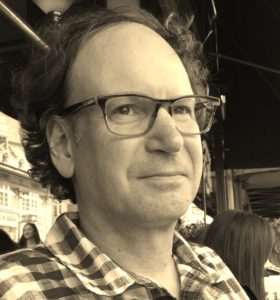 Albert W. Dzur, a political science professor at Bowling Green State University and a regular contributor to the National Civic Review, has been researching the relationship between professionals, civic engagement and democratic innovation.
Albert W. Dzur, a political science professor at Bowling Green State University and a regular contributor to the National Civic Review, has been researching the relationship between professionals, civic engagement and democratic innovation.
In his recently released book, Democracy Inside: Participatory Innovation in Unlikely Places, Dzur takes an in depth look at three professionalized institutions that intersect with the public—education, the criminal justice system and local governments—in an effort to develop a “grounded political theory of democratic change, one in which citizens effectively engage with institutions.”
Drawing on interviews with fifty practitioners who are working with the public through innovative strategies such as democratic schooling, restorative and community justice programs, and collaborative local governance initiatives, Dzur explores examples of “democratic professionals” breaking down barriers and bringing people into decision-making processes.
Democratic professionals, writes Dzur, are “reform-minded innovators, working in education, journalism, criminal justice, healthcare, city government, and other fields. They are professionals not because they do democracy professionally, but because they do professionalism democratically.”
These professionals, he says, are using their “training, capabilities and authority to help people in their fields of action solve problems together, and even more important, to recognize the kinds of problems the they need to solve. They share previously professionalized tasks and encourage lay participation in ways that enhance and enable collective action and deliberation about major social issues inside and outside professional domains.”
Dzur makes a sharp distinction between democratic professionalism and a more traditional approach he describes as “social trustee professionalism.” Social trustee professionals see themselves as serving the public through “their commitment to high standards of practice, a normative orientation toward a sphere of social concern…and self-regulation.” This approach requires the public to trust that the professionals are competent in their fields and true to their ethical codes.
One example he cites in the book is the professional local government manager who views his/her job as managing issues based on expertise in areas such as budgeting, planning and service provision. This idea of professionalism, the book suggests, can “shrink the space of democratic authority” when professional managers make decisions without the direct participation or knowledge of ordinary members of the public.
Another problem with the social trustee model is that it implicitly requires a high level of public trust, and trust in institutions has been in short supply since the late 1960s. Democratic professionalism, Dzur hopes, can overcome some of the distrust and pessimism that has brought democratic institutions into a period of crisis in recent years. The good news is that Dzur has found examples of democratic innovation in communities large and small, urban and rural in every region of the country.
To learn more, purchase Democracy Inside: Participatory Innovation in Unlikely Places.



